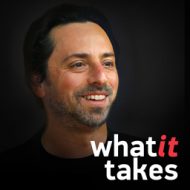I was fortunate to be at Stanford, and I was really interested in data mining, which means analyzing large amounts of data, discovering patterns and trends.
Sergey Brin was born in Moscow, Russia in 1973. He immigrated with his family to the United States at the age of six and grew up in Adelphi, Maryland. His father, Michael Brin, was a professor of mathematics at the University of Maryland. Like Larry Page, he attended a Montessori school as a small child. He graduated from Eleanor Roosevelt High School in 1990 and entered the University of Maryland, College Park. In only three years, he graduated with highest honors in mathematics and computer science. He entered graduate school at Stanford University with a graduate fellowship from the National Science Foundation.

Brin soon authored more than a dozen papers on data mining and pattern extraction for leading academic journals, including “Extracting Patterns and Relations from the World Wide Web,” “Scalable Techniques for Mining Casual Structures,” “Dynamic Itemset Counting and Implication Rules for Market Basket Data,” and “Beyond Market Baskets: Generalizing Association Rules to Correlations.” He also created a website for film ratings and designed a software application to translate documents from TeX, the text processing language often used for scientific papers, to HTML (hypertext markup language), the code in which Web pages are written.

At Stanford, Sergey Brin met fellow computer science graduate student Larry Page, who recruited him to join his research project. The Internet and the World Wide Web were just taking shape as major forces in telecommunication when Larry Page and Sergey Brin entered Stanford. Page wanted to devise a method for determining how many other Web pages linked to any one given page. Existing facilities for exploring the Web could only rank search results by the frequency of appearance of a given word on any page of the Web. Searches often produced endless lists of websites of very little pertinence to the user’s query. Page soon found that ranking websites by the number of links leading to it from other sites was a far more useful measure of a Web document’s relevance to a user’s search criteria. To explore the possibilities of his new “PageRank” mechanism more fully, he called on the data mining expertise of his classmate, Sergey Brin.
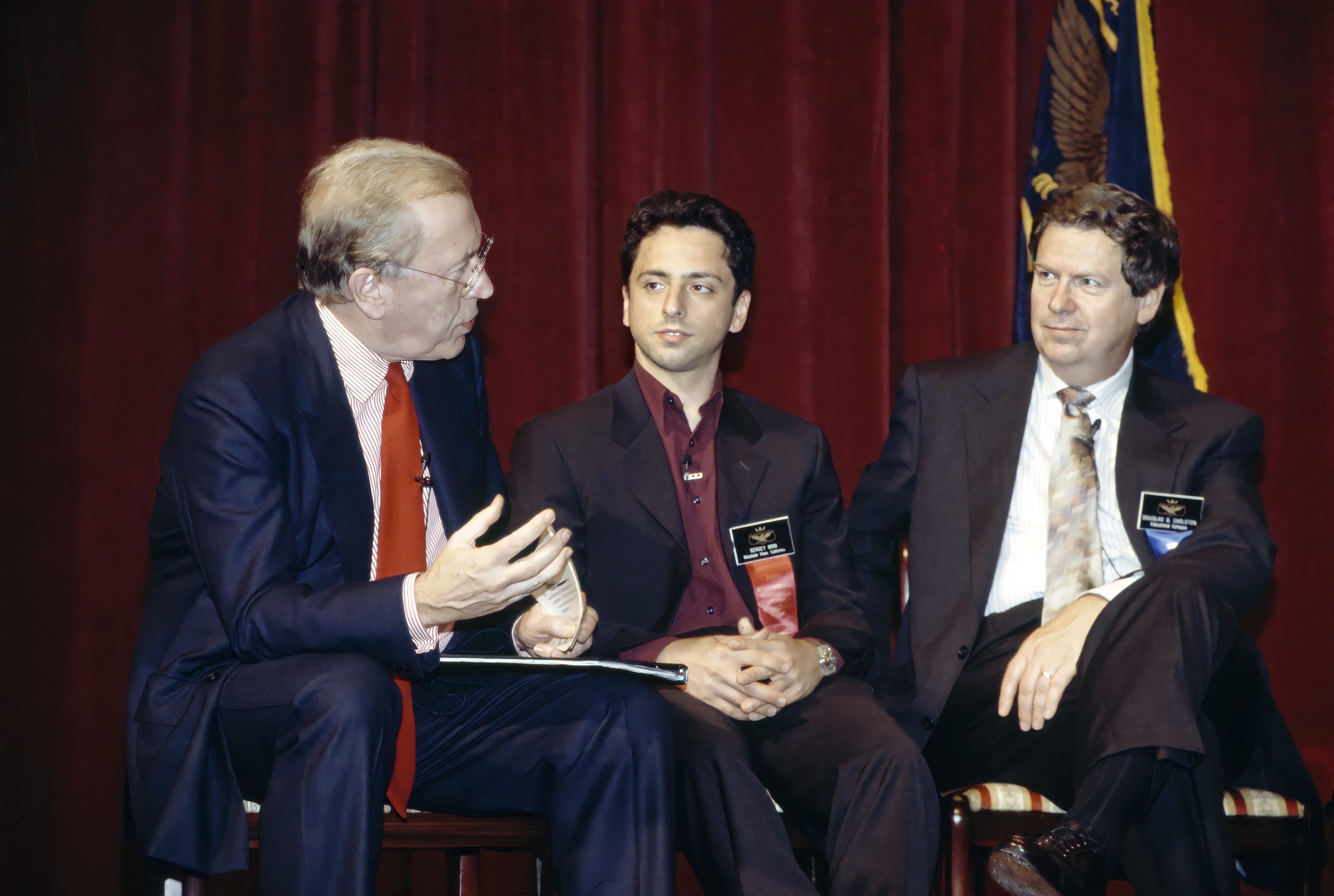
Together, Page and Brin wrote the paper “Dynamic Data Mining: A New Architecture for Data with High Dimensionality,” and followed it with “The Anatomy of a Large-Scale Hypertextual Web Search Engine.” The latter paper quickly became one of the most downloaded scientific documents in the history of the Internet. For a time, Page and Brin ran the prototype of their search engine, which they named “BackRub,” on an assortment of inexpensive personal computers stored in Larry Page’s dorm room. Word quickly spread beyond the walls of Stanford that the two graduate students had created something far more useful than existing search technology.

They registered the domain name google.com in 1997. The domain name was derived from the term “googol,” the very large number written as a one followed by 100 zeros, an expression of the vast universe of data the Google search engine was designed to explore. Page and Brin incorporated Google as a privately held company in 1998 and relocated their servers from Larry Page’s dorm room to a friend’s garage in Menlo Park, California. Having completed their master’s degrees, they took a leave of absence from the Ph.D. program to concentrate on building their business. At first, Larry Page served as the company’s CEO, Sergey Brin as its president. Their stated mission was “to organize the world’s information and make it universally accessible and useful.”
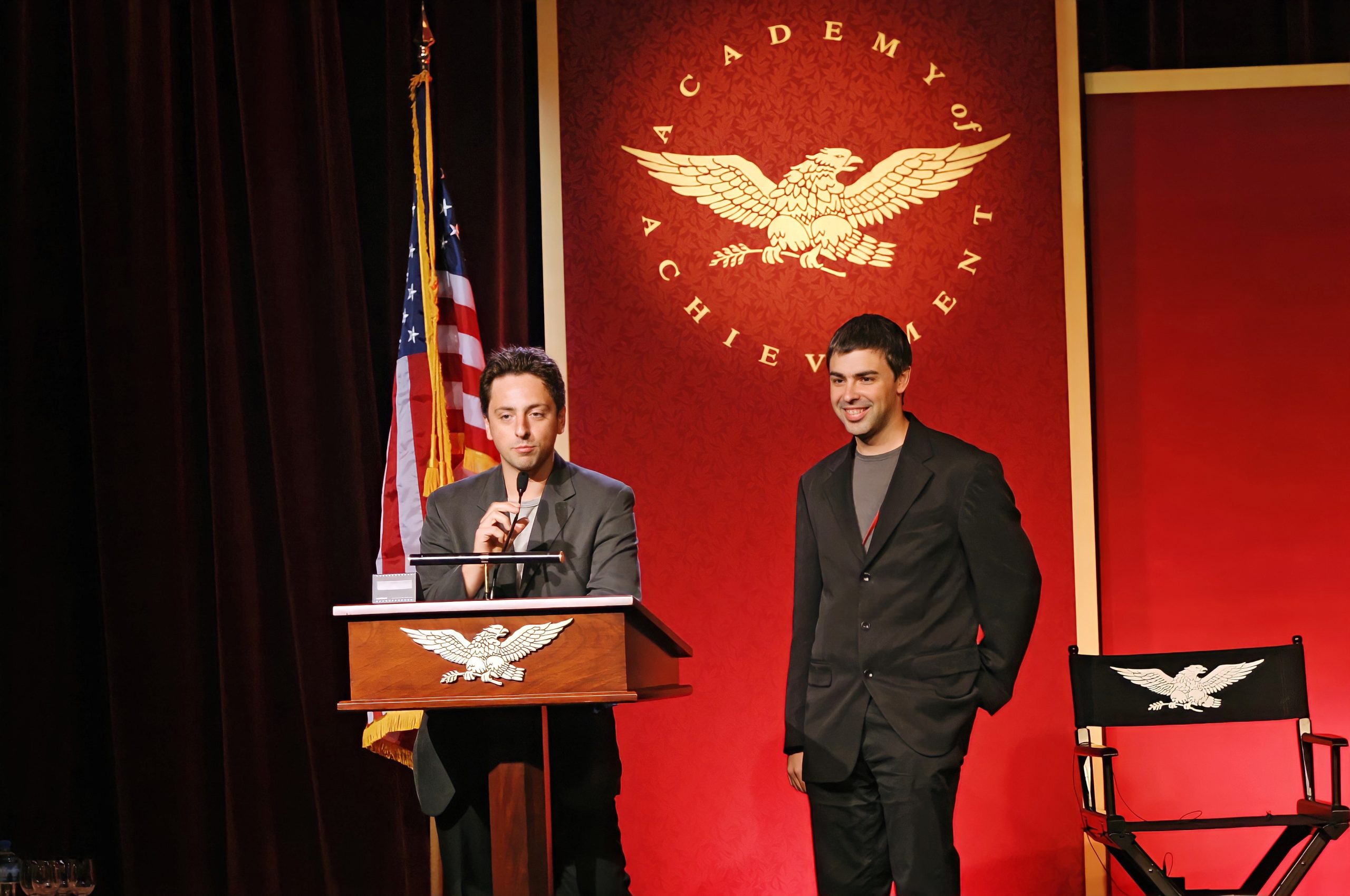
After quickly outgrowing a series of office locations, the company leased a complex of buildings in Mountain View, California in 1999. Google has since purchased the entire property, known as the GooglePlex, one of the most unusual and innovative workplaces in the world. In 2000, they began selling text-based advertisements associated with search keywords. The text-only ads on their graphics-free home page kept their download time to the bare minimum, and their ability to deliver ads directly related to the interests of the user made the ad space highly valuable.
That same year, Larry Page and Sergey Brin, still enrolled as Ph.D. candidates at Stanford, attended the Academy of Achievement’s International Achievement Summit in London, England as graduate student delegates. The interview recorded at that time can be read on this website. They returned to the 2004 International Achievement Summit in Chicago as recipients of the Academy’s Golden Plate Award.
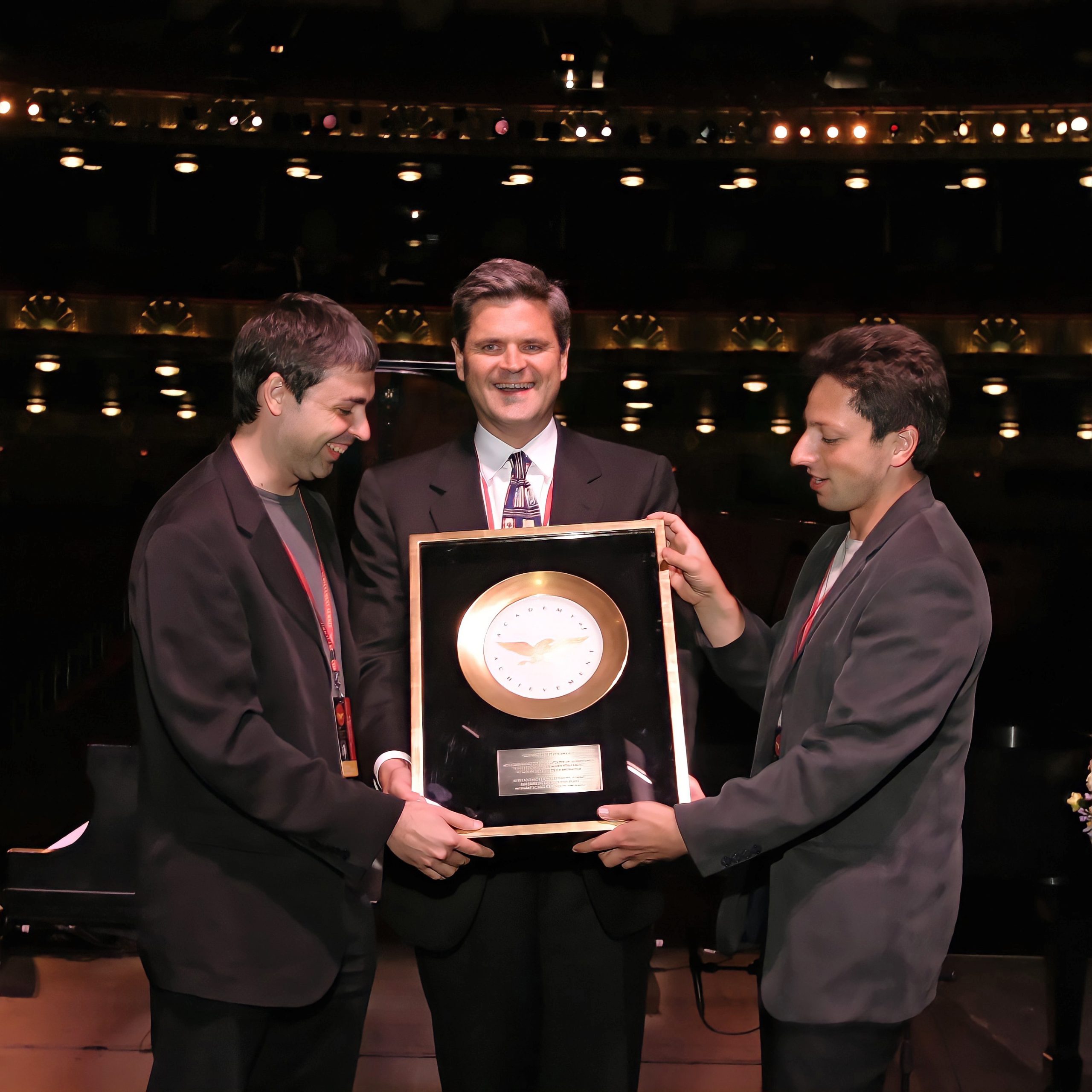
By 2001, a vast number of once-promising Internet startups had folded, but Google was growing explosively and turning a profit. Page and Brin recruited Novell executive Eric Schmidt to serve as CEO, with Larry Page taking the role of President for Products, and Sergey Brin as President for Technology. The three have continued to run the enterprise as a triumvirate ever since.

Google’s initial public offering in 2004 raised $1.67 billion, giving the company a market capitalization of $23 billion. A number of Google employees with shares in the company became millionaires overnight, and Larry Page and Sergey Brin found themselves multibillionaires at age 27. Google was an immediate favorite with individual investors and the stock price has soared. All three top executives — Larry Page, Sergey Brin and Eric Schmidt — have reduced their annual salaries to a dollar a year and refused bonuses, tying their personal wealth directly to the company’s performance in the stock market.

By the end of 2006, Google had over 10,000 employees and annual revenues well over $10 billion. Various estimates place Larry Page and Sergey Brin among the two dozen richest people on Earth, and the dozen richest Americans. Despite its enormous growth, Google has largely succeeded in preserving a uniquely informal and creative atmosphere at its Mountain View campus. Google employs a Chief Culture Officer to maintain and develop a creative and collaborative environment. Employees are encouraged to spend 20 percent of their work time on independent projects. As many as half of Google’s new products originated in this Innovation Time Off program. In 2007 and 2008, Fortune magazine, in its annual Top 100, ranked Google as the best company in the world to work for.

In addition to its in-house product development, Google has also grown through strategic acquisitions of hardware and software companies with innovative video, teleconferencing and social networking products. One of the most dramatic of these was the 2006 purchase of the online video site YouTube for $1.65 billion. Prior to the sale, YouTube’s earnings were negligible, but Google quickly turned it into a profit center.
The following year, Google acquired the software company DoubleClick for $3.1 billion. DoubleClick technology directs display advertising to users based on their search behavior. DoubleClick complements the formidable arsenal of technologies that Google has deployed to revolutionize online advertising. AdWords places advertising in third-party websites, on a cost-per-click or cost-per-view basis. Google Analytics enables the owners of websites to study the traffic to their sites. AdSense allows these owners to display advertising on their sites; they are then paid by the advertisers on a per-click basis. Today 99 percent of Google’s revenue is derived from advertising. Users also have the option of purchasing Google Site Search, a service that provides access to the Google index without advertising.

In recent years, Google has introduced a number of popular new services and applications, including a toolbar that allows users to perform searches from their desktops, without visiting the Google website. The website itself enables searches for video and still imagery as well as text. Google Maps is a popular navigation tool, while Google Earth allows users to access satellite imagery to zoom in on locations all over the world. The most ambitious project of all, Google Book Search, aims to make the contents of vast libraries of books available and searchable online. Google Books offers free access to books that are already in the public domain, while selling digital versions of new books online.

Google also provides a free Web-based email service, Gmail, which offers its users far more storage space than most other services. The company now offers a suite of business tools, including word processing and spreadsheet applications, at a fraction of the cost of competing office software packages. Google has created its own Web browser, Google Chrome, as well as the popular Picasa photo organization and editing software. Other Google applications include: Google Calendar; Google Docs, an online tool for collaborative writing and editing; Google Translate, which can translate documents back and forth between dozens of different languages, and allows users to compare and rate alternative translations. One of the company’s most ubiquitous products is the Android smartphone operating system.
A philanthropic arm, Google.org, focuses on climate change and global issues of poverty and public heath. The company has run an online poll to select nonprofit initiatives to receive $10 million in Google.org donations. One of Google.org’s principal projects is the development of a 100-mile-a-gallon hybrid automobile. As a company, Google maintains a commitment to environmentally sustainable technology. It has the largest solar power capacity of any corporate campus in the United States, and even the grounds of its green campus are grazed by a flock of goats. Google has negotiated 20-year power contracts with wind farms in Iowa, and in 2010 acquired a 20 percent stake in two wind farms built by NextEra Energy Resources in North Dakota.
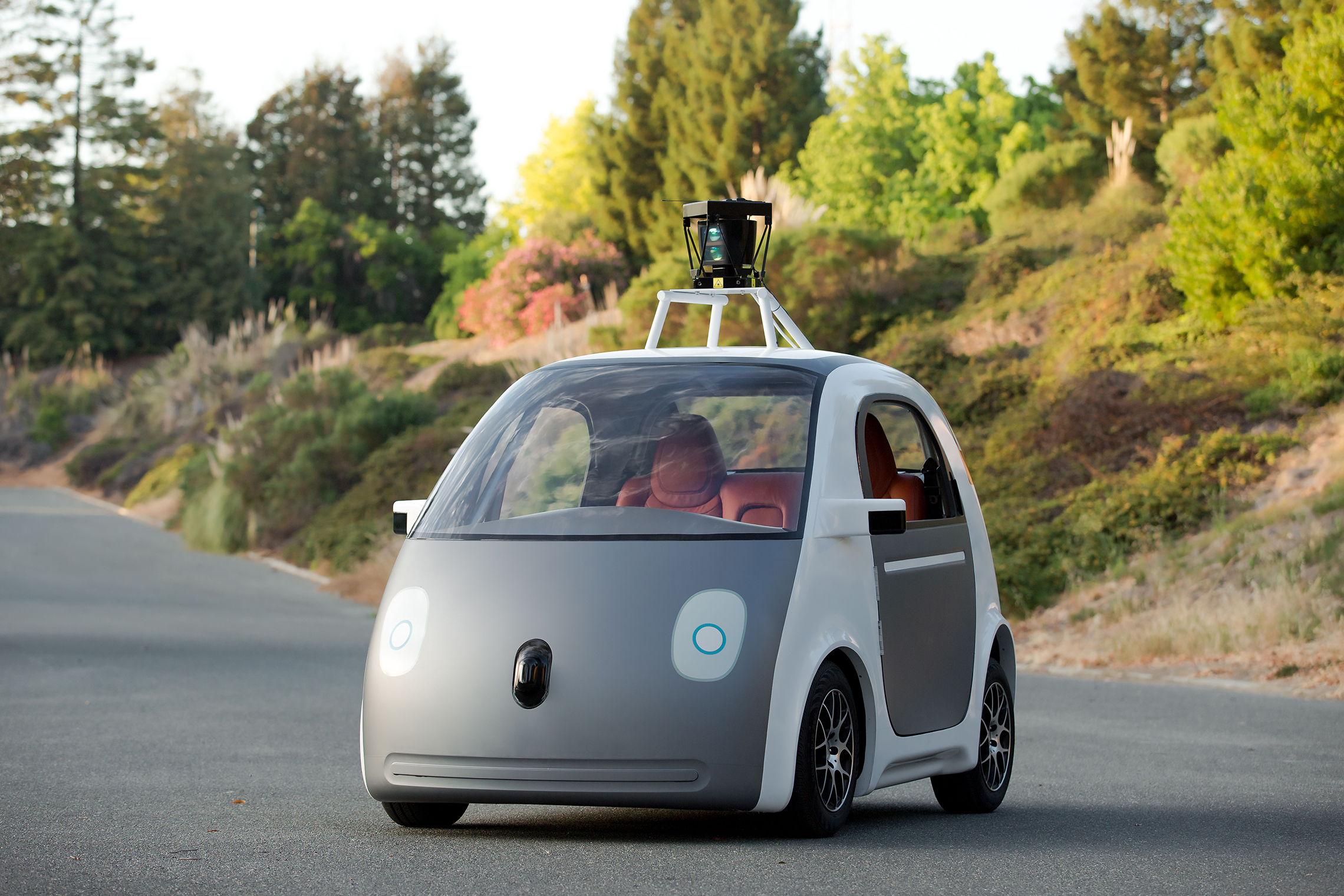
Google has consistently supported the principle of “net neutrality” that requires broadband carriers to treat all websites equally, but Google spokesmen caution Internet users against unrealistic expectations of online privacy. The future of the Internet, they maintain, will embody a principle of “true transparency, no anonymity.” Meanwhile, Google seeks the expansion of broadband access. It provides free wireless broadband service throughout the city of Mountain View, and a subsidiary, Google Fiber, is testing wireless broadband in cities across the United States.
In 2011, Google initiated its largest acquisition yet, buying Motorola Mobility for $12.5 billion. Motorola had been a principal manufacturer of phones running Google’s Android operating system, and the merger gave Google ownership of significant patents in the mobile phone sector. Within two years of closing the deal, Google later sold the company to Lenovo of Japan, while keeping control of the all-important patents. Google continues to make strategic acquisitions of startups in the fields of gaming, virtual reality, online music, image recognition and artificial intelligence.

The Google Brain Project, initiated in 2011, has used Google’s massive reserves of data and its distributed computer infrastructure to develop a large-scale artificial neural network, capable of interpreting visual, written or auditory data and learning from its own mistakes. Elements of this technology are now used in the speech recognition feature of the Android Operating System.
In 2013, the company introduced Google Glass, a hands-free voice-activated computer built into a pair of eyeglasses, with a display projected into the eye and an audio speaker audible only to the wearer. Google Glass enables the wearer to take pictures, record video, dictate messages, navigate, and access other information without significantly obstructing the natural field of vision. Google made prototypes available on a limited basis through 2015, before withdrawing the product for further experimentation.
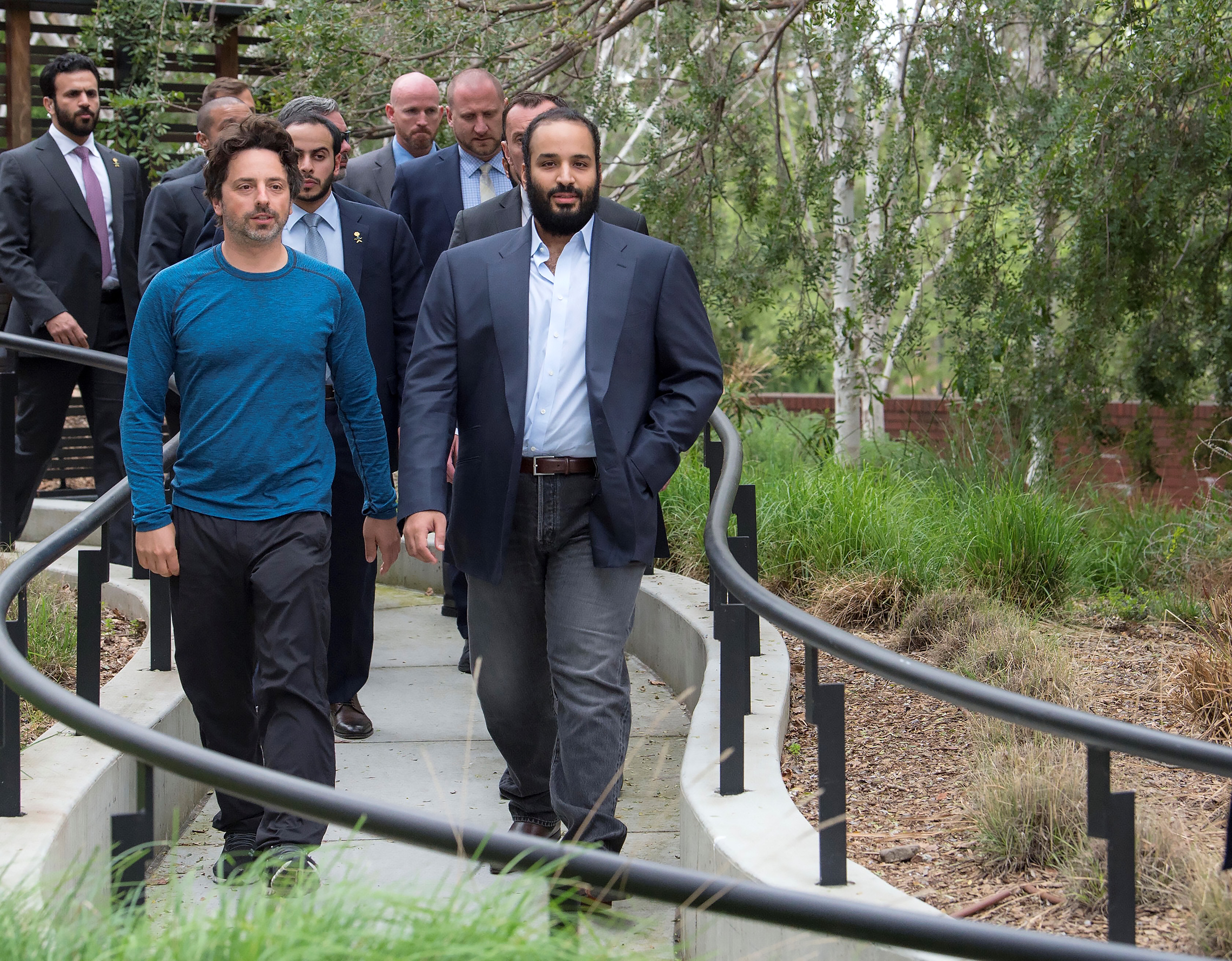
Google reorganized its diverse interests as a holding company, Alphabet Inc., in 2015, with Google as its principal subsidiary. Google’s products chief, Sundar Pichai became CEO of Google, while Sergey Brin served as the first president of Alphabet, with Larry Page and Eric Schmidt filing the roles of Alphabet CEO and executive chairman, respectively. Google’s products chief, Sundar Pichai, became CEO of Google, while Sergey Brin served as the first president of Alphabet, with Larry Page and Eric Schmidt filing the roles of Alphabet CEO and executive chairman, respectively.
Today, Google remains the Internet’s most visited website, employing well over a million servers around the world to process over 3.5 billion search requests every day. In 2016, the company opened a new 11-story office complex on St. Pancras Square in London. As of that year, Google had 70 offices in more than 40 countries, and data centers across the U.S., in Chile, Finland, Ireland, Belgium, Singapore and Taiwan. Sergey Brin’s marriage to biotech analyst and entrepreneur Anne Wojcicki ended in 2015. The couple have one child and continue to operate a charitable foundation together.
Former Stanford University president John L. Hennessy succeeded Schmidt as executive Chairman of Alphabet in 2018. At the end of 2019, Sergey Brin and Larry Page announced that they would step down from their executive positions with the parent company. Sundar Pichai was named CEO of Alphabet as well as Google. Brin and Page continue to serve on Alphabet’s board; as the two largest stockholders they retain controlling interest in Alphabet and all its subsidiaries, including Google.

In 2022, Sergey Brin’s secretive project to build huge electric airships, known as Lighter Than Air (LTA) Research, is scheduled to begin test flights over Silicon Valley. LTA hopes to reinvent the blimp for the 21st century with “zero emissions” flights. Brin decided to build his own airship in 2014 after visiting the Ames Research Center, which is located near Google’s Mountain View, California, headquarters. Ames is previously home to the USS Macon, a massive airship built by the US Navy in the 1930s. He started working on LTA in 2017 before stepping down from his duties at Alphabet.
In 2023, Sergey Brin has resumed active participation in the company’s operations, particularly in the development of Google’s new artificial intelligence system, Gemini. Regularly present at the company’s Mountain View offices, Brin is engaging more deeply with the team, attending frequent meetings, and actively intervening in key issues like the hiring of high-demand researchers. This significant change comes as Google prepares to take on OpenAI’s GPT-4 model with its next big AI venture, Gemini. Despite Google’s early dominance in AI, the company has been comparatively slow in turning this technology into new products, and this increased engagement from Brin indicates the growing importance of AI at this juncture.
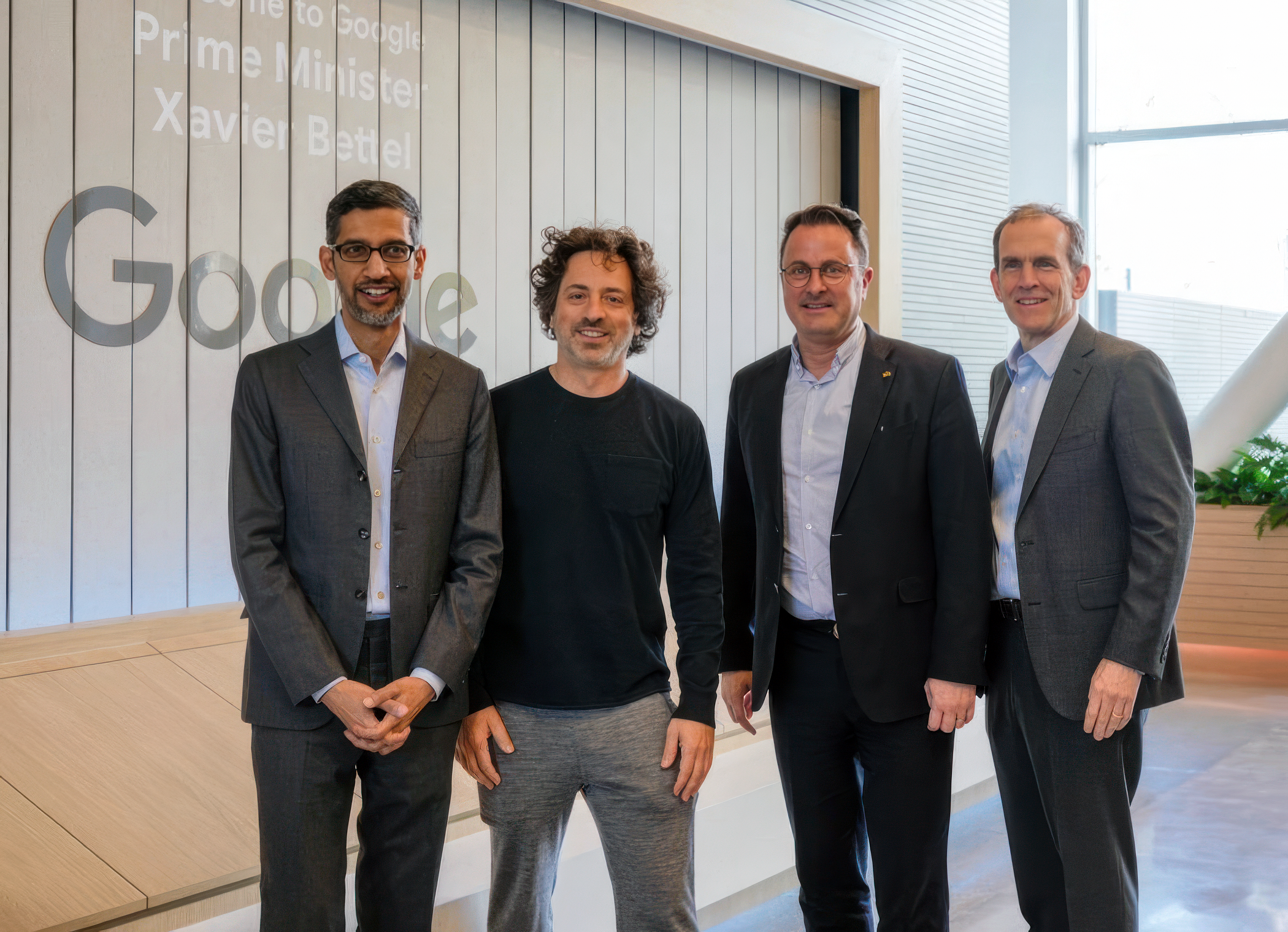
Brin’s primary focus in recent years had been his personal interests and philanthropic efforts, but now he spends substantial time with the AI researchers at Google’s Charleston East building. His re-involvement in the company’s daily affairs has been welcomed by many employees who see it as a positive endorsement of their work. This move by Brin coincides with the intensifying competition in AI research, highlighted by the release of ChatGPT by OpenAI, a Microsoft-backed research company. It’s worth noting that Brin doesn’t have a formal role at Google beyond being a co-founder and board member, as of now. However, his renewed dedication to the AI domain signals Google’s determination to stay at the forefront of AI innovation in 2023.
In 2024, Brin ranked seventh on Bloomberg’s wealth index with a net worth of $151 billion. Although he stepped away from day-to-day operations four years ago, he remains one of the company’s largest individual shareholders.

If you use the Internet, chances are you use Google every day. The search engine and the enormously successful company that shares its name were the creation of a pair of Stanford University graduate students still in their mid-20s, Larry Page and Sergey Brin.
It was Larry Page who first hit on the idea of analyzing Internet links to rate their relevance to a given information search. At first Page was only interested in writing a fun and interesting dissertation, but he soon realized his idea had far greater potential. With his classmate Sergey Brin, he presented his work to acclaim at the World Wide Web conference in 1998. Within a year they had raised over $30 million to start a company, Google Inc., providing a free Web search service that can return an ordered list of results in a fraction of a second. The simple white page with the multi-colored logo was an immediate hit with Web surfers around the world. The website generates enormous revenue by providing advertising space linked by content to the results of a given search.
When Page took the company public in 2004, he and Sergey Brin became multi-billionaires overnight. That same year, they joined the select company of Academy of Achievement student delegates who have returned to the International Achievement Summit as honorees of the Academy. Today, Google is the most-used Web search service in the world, conducting more than a billion searches a day, in over 100 languages, and has given the English language a new verb: “to Google.” Larry Page and Sergey Brin have transformed the way the world accesses and uses information.
We’re talking to Larry Page and Sergey Brin, the co-founders of Google. Sergey Brin, how do you see Google as a company, and what do you hope to accomplish with it?
Sergey Brin: At Google, our mission is to make the world’s information accessible and useful. And that means all of the world’s information, which now, in our index, numbers over a billion documents, and it’s an incredible resource. In history, you have never had access to just pretty much all of the world’s information in seconds, and we have that now, and to make it really useful, you have to have a good way of finding whatever it is that you want. That’s precisely what we work on at Google. My hope is to provide instant access to any information anybody ever wants in the future.
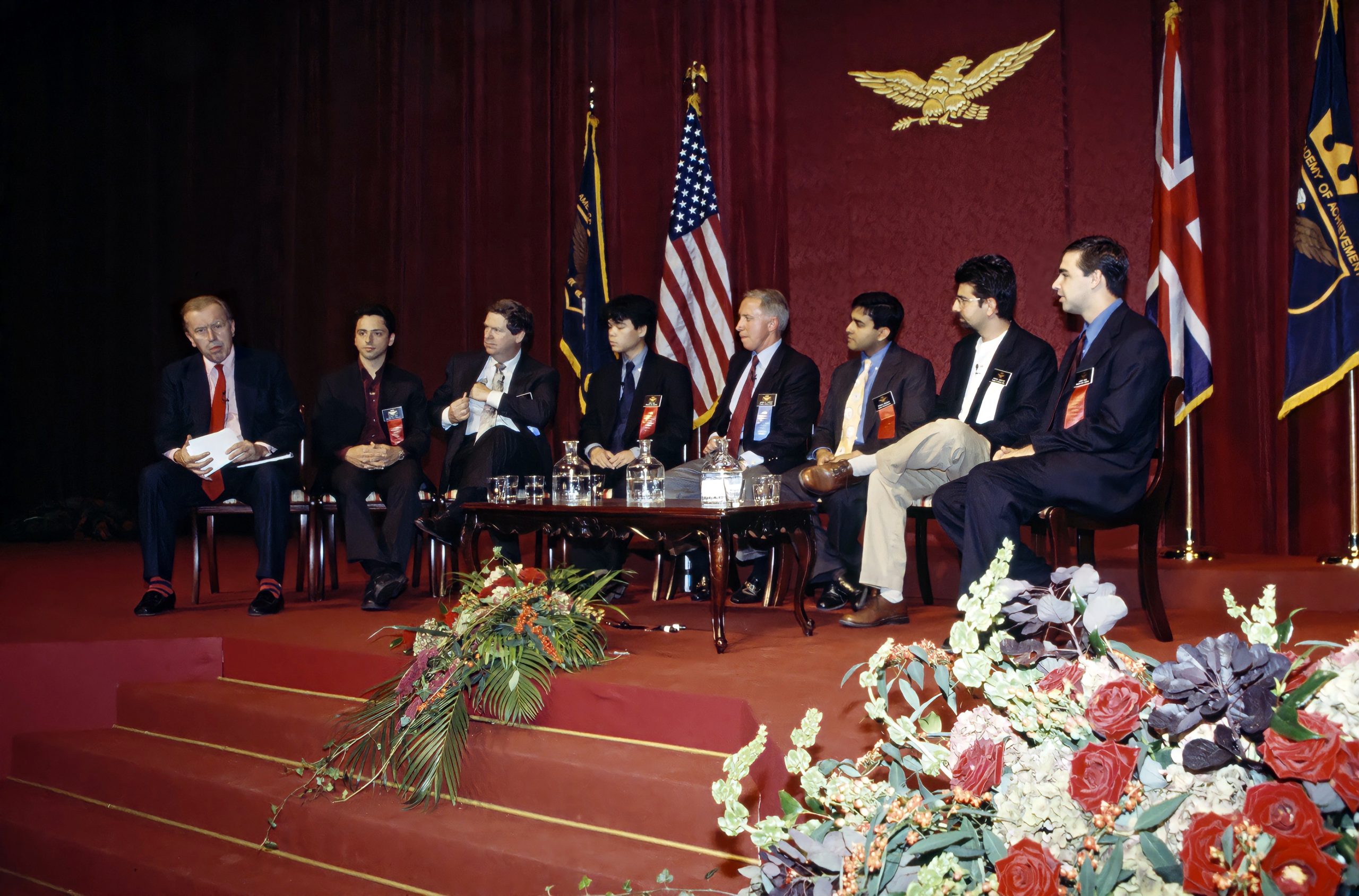
Certainly, you weren’t the only ones with that objective at the time, but you two did something about it. How do you account for that?
Sergey Brin: That’s true. Certainly anyone can say, “Oh, I want to build a car that is going to cost $5 and go 500 miles an hour,” and that would be great.
I was fortunate to be at Stanford, and I was really interested in data mining, which means analyzing large amounts of data, discovering patterns and trends. And at the same time, Larry joined Stanford in ’95, and he started downloading the Web, which it turns out to be the most interesting data you can possibly mine. Our joint effort, just looking at the data out of curiosity, we found that we had technology to do a better job of search, and from that initial technology, we got really interested in the problem, and we realized how impactful having great search can be. So we built technology upon technology after that, to bring Google to where it is today, and we continue to develop lots of technology for tomorrow.
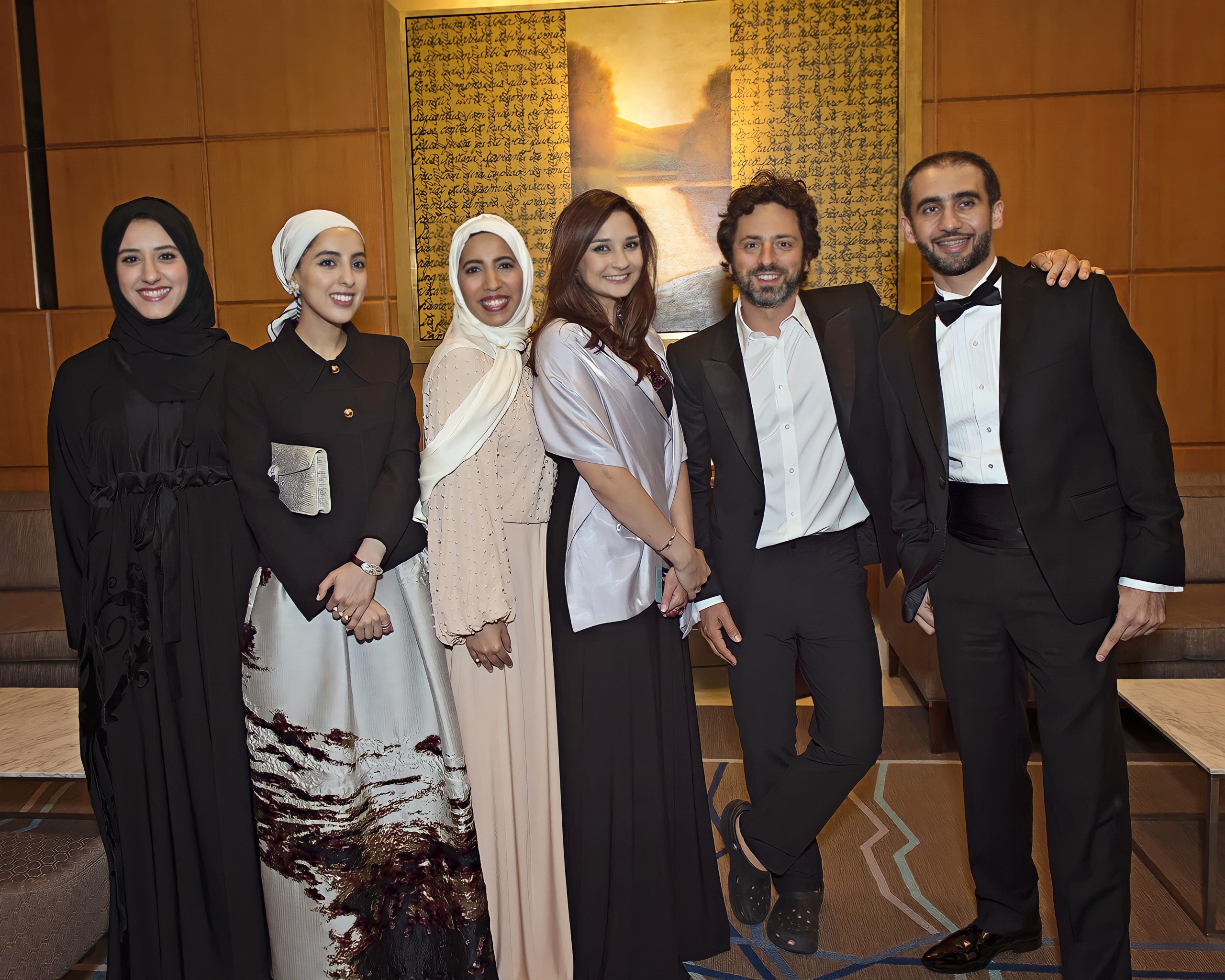
Why is it that you perceived the need for Google before anyone else did?
Larry Page: Well, it’s actually a great argument for pure research because…
We didn’t start out to do a search engine at all. In late 1995, I started collecting the links on the Web, because my advisor and I decided that would be a good thing to do. We didn’t know exactly what I was going to do with it, but it seemed like no one was really looking at the links on the Web — which pages link to which pages. In computer science, there’s a lot of big graphs. Right now, (the Web) has like five billion edges and two billion nodes. So it is a huge graph. I figured I could get a dissertation and do something fun and perhaps practical at the same time, which is really what motivates me.
I started off by reversing the links, and then I wanted to find basically, say, who links to the Stanford home page, and there’s 10,000 people who link to Stanford. Then the question is, which ones do you show? So you can only show 10, and we ended up with this way of ranking links, based on the links. Then we were like, “Wow, this is really good. It ranks things in the order you would expect to see them.” Stanford would be first. You can take universities and just rank them, and they come out in the order you’d expect. So we thought, “This is really interesting. This thing really works. We should use it for search.” So I started building a search engine. Sergey also came on very early, probably in late ’95 or early ’96, and was really interested in the data mining part. Basically, we thought, “Oh, we should be able to make a better search engine.”
Search engines didn’t really understand the notion of which pages were more important. If you typed “Stanford,” you got random pages that mentioned Stanford. This obviously wasn’t going to work.

Larry Page, where do you go from here? What do you see yourself doing in ten or 20 years?
Larry Page: Artificial intelligence would be the ultimate version of Google. So we have the ultimate search engine that would understand everything on the Web. It would understand exactly what you wanted, and it would give you the right thing. That’s obviously artificial intelligence, to be able to answer any question, basically, because almost everything is on the Web, right? We’re nowhere near doing that now. However, we can get incrementally closer to that, and that is basically what we work on. And that’s tremendously interesting from an intellectual standpoint.

